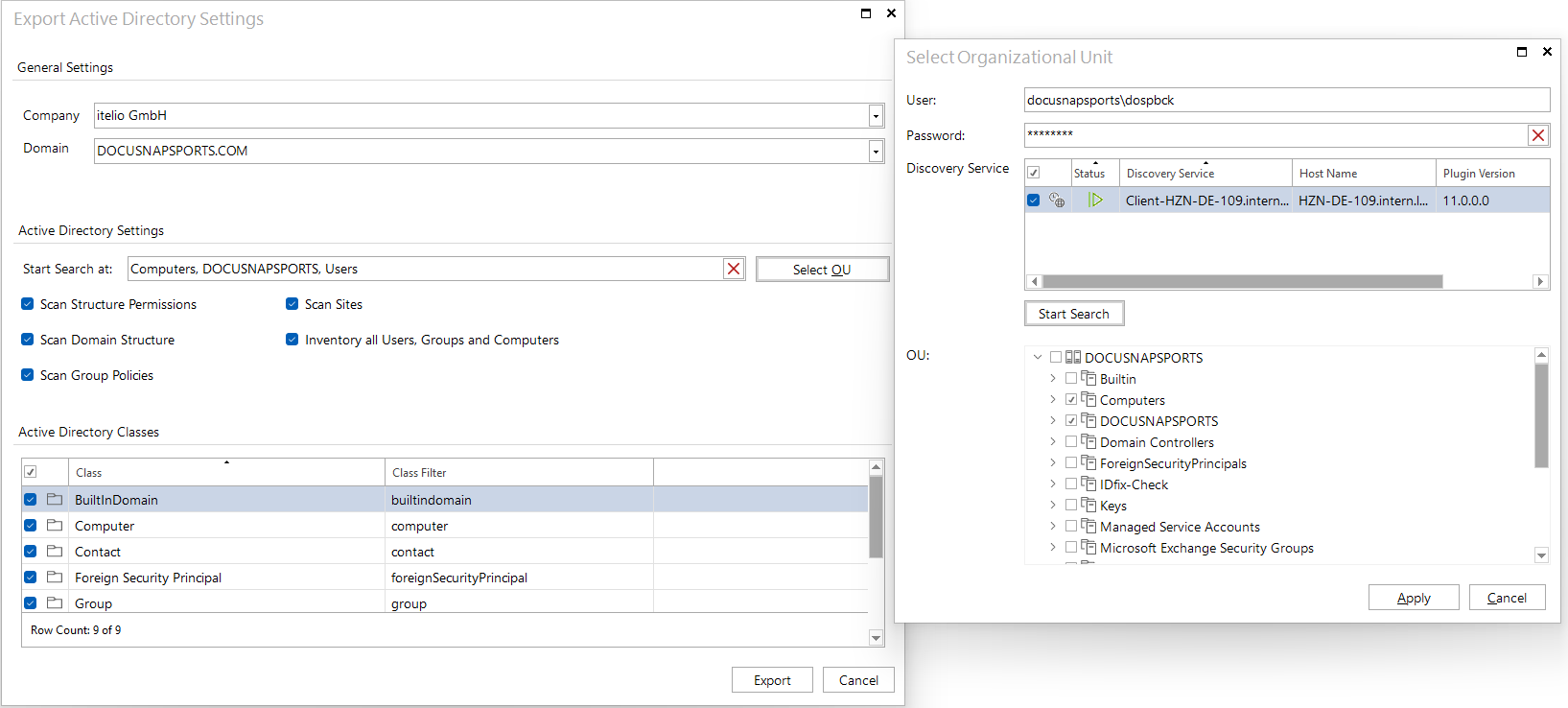Active Directory
2 minute read
Docusnap offers two modules for inventorying Active Directory systems:
- Discovery-ADDS.exe (This module is always up to date and should be preferred.)
- Discovery-ADDS-Legacy.exe (corresponds to the status of Docusnap 12 and will not be further developed, remains for existing implementations)
The Discovery-ADDS.exe module can be executed either by double-clicking or via the command line of the domain controller.
For a convenient configuration of the inventory with the Discovery-ADDS.exe module, without the need to manually handle numerous parameters, the Export AD Settings wizard should be used. If no configuration is specified, default values are used.

This wizard, based on the already familiar wizard, is used to select the scan scope, scan options, OU filters, etc. and exports them to a zip file.

This zip file contains the configuration file (ADSettings.xml), the schema (ADSSchema.xml) and the .exe file for execution on the target system (Discovery-ADDS.exe).
C:\Discovery-ADDS.exe -config ADSettings.xml
ADDS specific Options:
Important: Create the ADSettings.xml for inventory configuration with the 'Export AD Settings' wizard.
-config <file>
Description: Specifies an XML file which contains the configuration for the execution. If
this parameter is not provided, the program searches for a file named ADSettings.xml in
the same directory and uses its settings. If neither this parameter is provided nor
ADSettings.xml is found in the directory, the inventory is conducted using default
settings.
Examples
ADDS-Inventory with specific settings: C:\Discovery-ADDS.exe -config ADSettings.xml
ADDS-Inventory with standard settings: C:\Discovery-ADDS.exe
Subsequently, this file can be imported into Docusnap through the File Import wizard.